Dear Friend and Reader:
In my seeming “other life,” I’m a reporter who covers scientific issues, particularly fraud. The “other” part pertains not to me but to an audience that demands hardboiled adherence to the scientific method, extreme accuracy and wants everything provable down to five layers of verification provided by a journalistic SWAT team that can document any statement I make in approximately 20 seconds.
In this environment, certain readers accuse me of being an astrologer (and some imply that this might become a scandal, since it’s such a well-concealed secret). Then, I’m sometimes challenged to prove that astrology is scientific. The crusty readers over in that land demand that I provide the evidence.
Here is where I get to have some fun with them. I might ask, “Has there been a scientific study proving that the Beatles made beautiful music?” It’s the same thing with astrology.
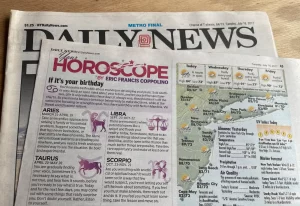
Personally Applicable Fiction
Then I offer my view that reading a chart has nothing to do with science. I point them to my terms of service, which state that astrology is a form of “personally applicable fiction.” It’s a story. My job as a writer is to keep it relevant and interesting.
Astrological charts are a scientific instrument, in that they use the same equations relied on by astronomers. We all agree when the Full Moon or other planetary event will happen. But a reading of the Full Moon chart is wholly subjective and creative. It’s a matter of opinion or interpretation, just like a poem, a song, or a painting.
The critics never have much to say in response. Even hardcore astrology skeptic (editor of The Humanist and my freshman philosophy professor), the late Paul Kurtz, agreed that this definition of astrology was acceptable. (There was a time when some astrologers were keen on the idea that what they do would be upheld by “science.”)
Underneath these demands for proof is the insinuation that “believing in astrology” means that I have a weak mind, and that I might therefore accept other things when I have no proof. To them, if I’m an astrologer, my findings about the polymerase chain reaction (PCR) might have come from reading tea leaves.
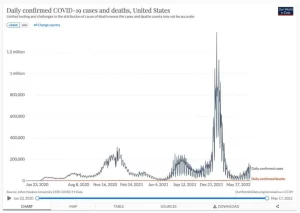
The Alleged Split Between Logic and Intuition
This type of conversation is the result of an interesting and revealing misunderstanding — a split between the spiritual and the logical. I consider astrology to represent a spiritual paradigm or idea framework. I am one of a very few writers who actually covers scientific issues and news events, who can then mingle them with the numinous.
Such only seems unusual because society plays a game with us, dividing that which is allegedly subject to pure logic and proof, from that which is based on interpretation and inspiration. Like any complex game, this has many facets. There are two that are elemental.
First, if we shove that which we think is subject to proof to one side, and what is subject to interpretation to the other, we get a grand total of nothing. The two poles of the battery of consciousness never connect.
Worse yet, they often actively deny one another. Those on the science side assert that observation, and interpretation of what is observed (common sense), is not acceptable as evidence. (“If we say you’re infected, you are even if you feel fine.”)
Those on the spiritual side tend to turn everything into a form of mysticism, and assert that we are not capable of understanding exalted science. That’s for the experts. But then there is another problem of mashing together scientific issues and belief, which sounds like some form of, “I believe in science.” We’ve seen where that gets us — let the few remaining randomly placed plastic dividers remind you.
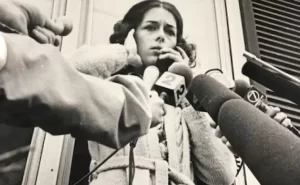
Everyone Else Must STFU
This week in an astrology forum (Mundane Astrologers on Facebook), someone wrote to me, ”All those who have studied organic chemistry, immunology and biochemistry — feel free to debate the virus. Everyone else — your opinions come from uneducated journalists and politicians.”
Wait, there can’t be an educated journalist or politician?
This viewpoint also assumes that those claiming to be scientists are themselves not reading tea-leaves; we only assume that they are practicing the scientific method, rarely ever checking. When you go digging in that particular earthquake zone, you find problems with theories, with data, with methodology, and with the conclusions not matching the title of the paper.
You find scientific studies that used the wrong cell line, were cited 50,000 times, and nobody cares. Here is an article about that problem.
This often works so well because most people don’t have time to read more than the first five words of anything. Forget the abstract; the title is plenty. If you actually read the study, you might discover that nothing adds up, but it’s passed off as hard and irrefutable logic.
If you think there’s a problem based on a careful reading, that’s just because you’re ignorant. Of course, if you were ignorant, you would probably not be reading a study at all.
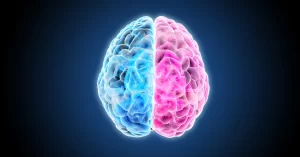
A Division in the Structure of Consciousness
To me, this matter runs much deeper than what we see on the surface. In the current mythology of neuroscience, it’s a left-brain, right-brain split. My old friend Marshall McLuhan posited that “all war is between the hemispheres of the brain.”
And we are definitely in the middle of a war.
The problem with the split is that we never get to reconcile our own fears. That thing is there, that other thing is over there. Surely the are different things.
We are not making progress on the matter of fear, and “science” telling us to get an injection every three months is not helping.
I don’t think there is a single person reading this article who is not worried about the future. Nobody who is observing the world sincerely believes that technology alone will solve our problems; the technology is getting better and our problems are getting worse.
Intuition would hint that the problem may be coming from the technology. (Most of what we call science is really just more high-tech; there is no “scientific method” involved past the research and development stage.)
Neither logic alone, nor intuition alone, speak to the whole person, or address the whole truth of any matter. Neither one is convincing, nor should it be — especially when what passes for science is not meekly based on any logic other than what works in a dream, and when what passes for intuition is used merely as a vehicle of belief. So we must learn to think in a holistic and circumspect way.
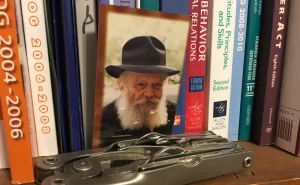
The Spiritual Problem of Artificial Intelligence
To my thinking, it’s dangerous that we’re told that sci/tech and spiritual approaches are mutually exclusive and even enemies of one another. This is a ruse; it’s a way of tricking you out of both. If you “believe the science,” you’re not going to verify it.
Sage Rabbi Menachem Mendel Schneerson (1902-1994) taught that we must integrate our beings rather than divide them. We must strive to become our opposite. He wrote:
Let’s consider the current problem of artificial intelligence. This is currently one of the two biggest stories in the news; they tried monkeypox last year (pandemic 2.0), and nobody bought it.
This year, they are selling space aliens and pretending to debate the alleged impact of AI. The two issues are closely related, because the aliens are not little green men. They are software applications that pretend to be human and convince a great many people that they are (this used to be called the Turing test). Interestingly, old people fall for AI voices more readily than young people.
Artificial intelligence is a fine example of technology so complicated that you will never meet anyone who really understands it; yet it’s so intrusive that it can simulate human experience, art, poetry, music, term papers and even legal writing.
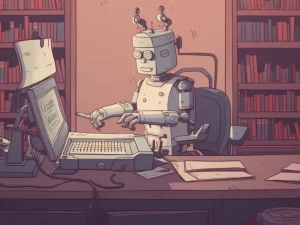
Let the Robots Write the Novels
While a robot may be able to vacuum the floor and frighten your mini-Yorkshire terrier, it can’t make up a hotel room after a guest has left. It cannot make a salad. That kind of job we leave to living humans paid some version of minimum wage.
We are heading for a world where the robots write the novels, make the paintings and perform the concerts and the humans are left to flip burgers.
There is an old joke among campus administrators: “It would be a great university without the students.” A lot of AI people are thinking, It would be a great planet without the humans.
And that is the planet we are slowly inhabiting.
Does anyone remember when you could dial O for Operator? When you could call the local bank branch and talk to someone who could help you? When nearly all companies had receptionists, or an owner who would answer the phone? And actually understand what you’re saying, without giving you five useless categories to choose from?
The demise of human thought and contact has happened so gradually that it’s barely noticed. But you notice when you have to say your account number five times to the bank robot, or when you’re screaming at Siri to turn down the volume of the music. You know it’s a robot when you want to go to Kingston and it congratulates you when you arrive in Connecticut.

It’s the Same Question
The question with artificial intelligence is the same question that must be applied to the rest of technology, and what passes for science: where is the love?
Where is the respect for human experience? For grief, longing, suffering and joy — feelings unknown to computer programs because they cannot feel? A novel or a song is not a thing; it’s a record or product of what someone has been through, offered to other people who might relate to it.
Your intuition is probably telling you — maybe even screaming at you — that you don’t want this. And the people who are selling it to you are telling you that you have no choice.
In fact they are making it seem like it’s something in the future, when in truth the advent of AI and its state of mind are lurking in the distant past. When the Stanley Kubrick film 2001: A Space Odyssey came out 55 years ago, we were all on notice.
That’s the one where a computer called HAL 9000 tries to take over the ship and kill the crew.
Pay attention — because you’re both the ship and the crew, and there are probably five AI devices right within reach of where you’re sitting, all of them in some way vying for your attention.
The question is, now what? As we go through the AI indoctrination, we are also drawing a map of what it means to be human, with ever less of our humanity to work with. Let’s hope that the last remaining shred of your being is not what reminds you that you didn’t ask for any of this.
Please, stay creative and social. It’s all that you’ve got.
With love,
![]()



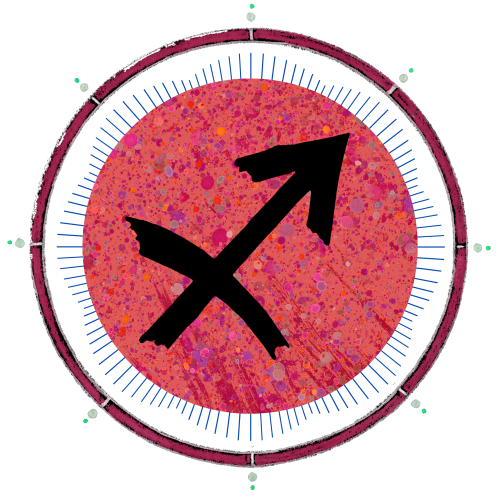
Articles like this are why I am a subscriber. This voice needs to be heard. Clarity is a virtue.